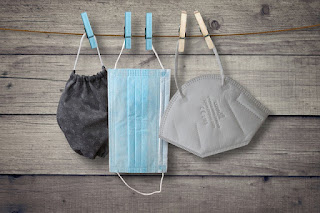Someone you love is struggling. You want to help. You're thinking of
offering to pay for their therapy.
It's a generous gesture, and it can be life-changing. But it's also
more complicated than it seems.
In my decade of private practice working with clients across 20+ countries,
I've seen well-meaning offers to pay for therapy backfire, and I've also
seen them change lives. Here's how to get it right.
Why Paying Directly for Someone's Therapy Can Backfire
When someone knows someone else is paying for their therapy, they often
feel guilty. "I should be able to handle this myself." That shame can make
them rush through therapy, hoping to "fix themselves" quickly to avoid
wasting your money.
I've had clients who received open-ended offers to pay for therapy from
parents or partners. They felt so guilty about the cost that they tried
to "graduate" after three sessions, long before they were ready. They
watched the clock, worried about the expense, and couldn't relax into
the work we needed to do.
But good therapy takes time, space, and calm, not pressure.
Then there's privacy. Mental health is deeply personal, and even when
the giver means well, the receiver might feel watched. They may feel
obliged to explain how it's going, or feel judged if they don't show
enough progress. That's a heavy burden when you're already struggling.
It's easy to forget that gifts can create pressure, not just gratitude.
That's especially true when the gift touches on something as private as
mental health.
There's a Better Way: Therapy Gift Vouchers
The solution is therapy gift vouchers. Think of them like a book token.
You buy one or more, hand them to your person, and walk away. They use
them when (and if) they're ready. And you'll never know if they do,
because I won't tell you.
It's support without pressure. Help without watching. A gift that respects
their privacy and autonomy.
Here's how therapy gift vouchers solve the problems:
No pressure to perform. The giver doesn't know if or when
the vouchers are used. There's no expectation to report back, show progress,
or prove the gift was "worth it."
No guilt about cost. There's a set amount. No meter running.
The recipient can focus on therapy instead of worrying about wasting someone's
money.
Complete privacy. I won't tell the giver anything about
whether the vouchers are used or how therapy is going. The recipient's mental
health remains entirely their own business.
They choose when they're ready. Sometimes people need time
before they're ready for therapy. Vouchers give them that space. They're not
forced to start before they're prepared.
When Are Therapy Gift Vouchers Most Helpful?
Gift vouchers are particularly helpful during difficult life transitions like
divorce, job loss, bereavement, or major illness, when someone you care about
clearly needs support but doesn't know where to start.
They're also popular around holidays and birthdays, when you want to give
something meaningful rather than another material gift.
And sometimes, they're simply a way to say "I see you're struggling, and I
want you to have access to help if you want it."
What Happens When Someone Uses a Gift Voucher With Me
When someone uses a gift voucher for therapy with me, we start by figuring
out what's going on. We work out what's causing their distress, whether it's
depression, anxiety, life circumstances, or a combination of factors.
Then we create a customized approach that fits their specific situation. Not
a one-size-fits-all method, but tools and strategies tailored to how their
struggles show up in their life.
I often combine different therapeutic approaches. For example, I use Cognitive Behavioural
Therapy for thought patterns that aren't serving them, and positive psychology
techniques to build strengths alongside addressing problems. This creates
comprehensive support tailored to each person.
How Therapy Gift Vouchers Work
You purchase vouchers. Contact me and I'll explain the options and help you choose the right amount.
You give them to your person. Just like a book token or gift card. No strings attached.
They use them when they're ready. The vouchers are valid for 6 months. They contact me directly to book sessions.
Their privacy is protected. I won't tell you whether they've used the vouchers, when they book sessions, or anything about our work together. That's between me and them.
If you're reading this and wishing someone would offer you this gift,
you can also purchase vouchers for yourself, or send this article to someone who
might want to help.
Ready to Purchase Therapy Gift Vouchers?
If you're planning this as a holiday or birthday gift, email me at least a week
in advance to ensure everything is arranged in time.
Visit the Gift Vouchers page to purchase,
or contact me directly:
Email: ellen.whyte@gmail.com
WhatsApp: +44 7514 408143
If you'd like to give someone this kind of support, I'm here to help you do it right.



